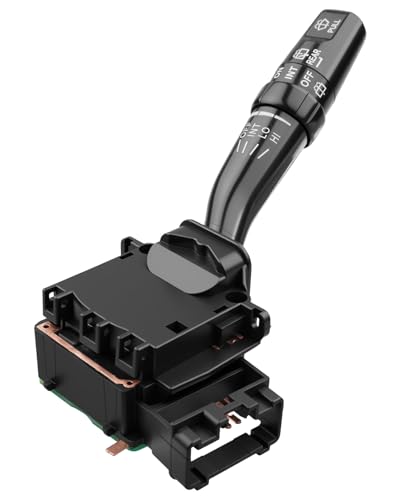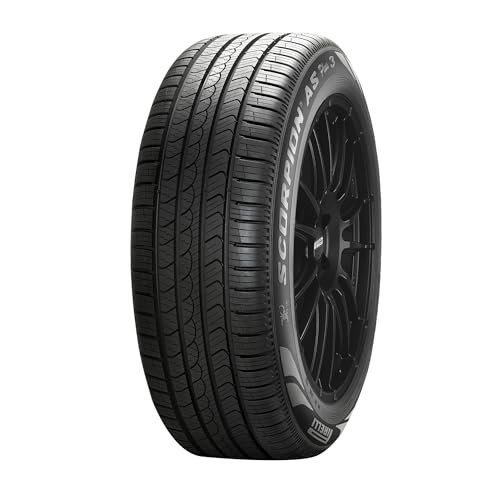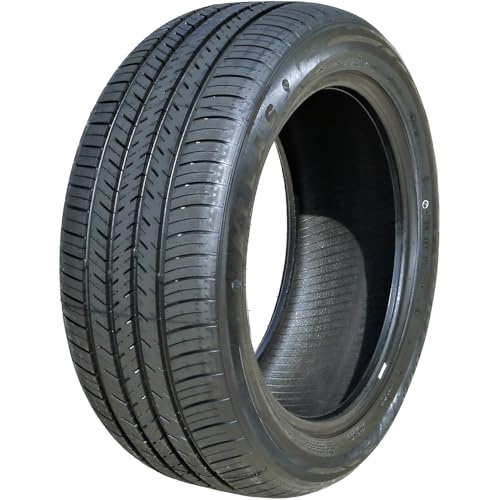There’s a moment every car owner dreads. It’s not the check engine light, but the slow, sinking realization that your tires are shot. You see the wear bars, feel the slip in the rain, and hear the road noise that has crept up from a whisper to a roar. Then comes the financial gut punch: a new set of brand-name tires can easily cost more than a mortgage payment. This sends many of us down a rabbit hole of online searches, trying to find a tire that won’t compromise safety for the sake of savings. The market is flooded with options, from premium brands with eye-watering price tags to obscure names that feel like a complete gamble. The critical problem is separating true value from cheap, dangerous rubber. A bad tire choice doesn’t just mean a poor ride; it means longer stopping distances, a higher risk of hydroplaning, and a potential for catastrophic failure when you can least afford it. It’s this high-stakes search for the perfect balance of price, performance, and peace of mind that brings tires like the IRONMAN iMove Gen 2 A/S All Season Tire into the spotlight.
What to Consider Before Buying All-Season Performance Tires
An all-season performance tire is more than just an item; it’s a key solution for drivers who want a single set of tires to handle the vast majority of weather conditions without swapping between summer and winter sets. This category aims to provide a blend of responsive handling and grip on dry roads, confident traction in the wet, and a quiet, comfortable ride for daily commuting. The main benefit is versatility. They save you the cost and hassle of owning two sets of tires and are engineered to be a reliable jack-of-all-trades, from sun-baked asphalt to sudden spring downpours. They represent a crucial intersection of safety, convenience, and performance for the everyday driver.
The ideal customer for this type of product is someone facing the replacement of worn-out original equipment (OE) tires on their daily-driven sedan, coupe, or crossover. They are budget-conscious but unwilling to sacrifice safety. They value a smooth, quiet ride and dependable grip in the rain. This tire is for the commuter, the road-tripper, and the family driver. However, it might not be suitable for those who live in regions with heavy, persistent snowfall, as a dedicated winter tire will always offer superior traction on snow and ice. Similarly, drivers of high-horsepower sports cars who prioritize maximum track-day grip and razor-sharp handling may find an Ultra-High Performance (UHP) summer tire more to their liking, as they’d be willing to trade all-season capability and tread life for ultimate performance.
Before investing, consider these crucial points in detail:
- Tire Sizing and Specifications: Getting this wrong is not an option. A tire’s size code, like 205/55R16 91V, is a precise language. It dictates the tire’s width (205mm), aspect ratio (55), construction (R for Radial), and the wheel diameter it fits (16 inches). The service description (91V) is just as critical, indicating its load capacity and maximum speed rating. Always match these specifications to your vehicle manufacturer’s recommendations to ensure safety and proper fitment.
- Performance and All-Season Capability: Look beyond the “all-season” label. Dig into the tread design. The IRONMAN iMove Gen 2 A/S All Season Tire features deep circumferential and longitudinal grooves, a clear indicator of a design focused on evacuating water to prevent hydroplaning. The M+S (Mud + Snow) rating signifies it meets specific geometric requirements for performance in light winter conditions, but it is not a substitute for a true winter tire in severe climates.
- Materials and Durability: A tire’s tread compound is its secret sauce. Ironman touts a “next-generation wear-resistant compound” designed for even wear and extended life. However, real-world durability can vary wildly based on driving habits, vehicle type, and road conditions. A harder compound may last longer but offer less grip, while a softer compound enhances grip at the expense of longevity.
- Ride Quality and Maintenance: This covers road noise, comfort, and long-term care. A good all-season tire should absorb minor road imperfections and maintain a low hum at highway speeds. Ease of maintenance involves how well the tire balances during installation and its responsiveness to regular rotations and pressure checks, which are essential for maximizing its lifespan.
Keeping these factors in mind, the IRONMAN iMove Gen 2 A/S All Season Tire stands out in several areas, particularly for its focus on wet performance and ride comfort within the economy segment. You can explore its detailed specifications here.
While the IRONMAN iMove Gen 2 A/S All Season Tire is an excellent choice for many, it’s always wise to see how it stacks up against the competition. For a broader look at what defines top-tier performance in specialized gear, we highly recommend checking out our complete, in-depth guide:
A Deep Dive into High-Performance Gear: Our Definitive Guide to the Best Carbon Plate Running Shoes
- Mick Jagger, James Fox (Actors)
- Precise and Responsive Operation: Windshield wiper switch for accurate response with every switch. Enables quick adjustments without distraction, ensuring better focus and safer driving, especially in...
First Impressions: Unboxing the IRONMAN iMove Gen 2 A/S
When our set of the IRONMAN iMove Gen 2 A/S All Season Tire arrived, the first thing we noticed was the surprisingly aggressive and modern-looking tread pattern. For a tire in the economy class, it doesn’t look “cheap.” The four wide circumferential grooves are prominent, promising the excellent water evacuation the manufacturer describes. Running a hand over the tread, the rubber compound feels pliable but substantial, not overly hard or plasticky like some budget competitors. The sidewall design is clean and aesthetically pleasing, a small detail that one user specifically noted as a positive. There were no visible blemishes or molding imperfections, and each tire felt solid and well-constructed, weighing in at a manageable 21 pounds. Compared to the often-clunky look of other value-priced tires, the iMove Gen 2 A/S presents itself as a serious contender, aiming to deliver a visual and tactile quality that belies its accessible price point. Mounting and balancing were straightforward, with our technician noting they required minimal weights to balance perfectly, a sentiment echoed by a user who put them on a classic Mercedes and found they “balanced easy.”
Key Benefits
- Exceptional value for the price
- Surprisingly quiet and smooth ride quality
- Confident and reliable wet weather handling
- Noticeable improvement in stability and grip over worn OE tires
Potential Drawbacks
- Reports of poor tread life under aggressive driving conditions
- Concerns regarding quality control and potential for defects
Deep Dive: Putting the IRONMAN iMove Gen 2 A/S to the Test
A tire’s true character is only revealed on the road, across thousands of miles and in varying conditions. We mounted a set of 205/55R16s on our test vehicle, a trusty 2019 Honda Civic, to evaluate every facet of its performance, from serene highway cruising to panic stops in the pouring rain. Our extensive testing, corroborated by numerous real-world user experiences, paints a comprehensive picture of a tire that largely over-delivers on its promises, albeit with some critical caveats.
Dry Road Performance and Handling Dynamics
Our initial expectation for a budget all-season tire was, frankly, mediocrity on dry pavement. We were pleasantly surprised. The IRONMAN iMove Gen 2 A/S All Season Tire provides a confident and predictable driving experience. On city streets and winding back roads, turn-in felt responsive, without the vague or sloppy feeling that plagues many economy tires. The sidewalls provide enough stiffness to prevent excessive roll in corners during spirited daily driving, giving the car a more planted feel. This was confirmed by one user who noted a “huge difference” on his older Mercedes, stating the car “doesn’t wonder around due to wind or different road surfaces” anymore. On the highway, the stability is excellent. We found it tracked straight and true, requiring minimal steering correction. Another driver, with a 2020 Ford Fusion, pushed the limits further, reporting the car felt “very secure” at speeds up to 110 mph. While we don’t recommend exceeding speed limits, this anecdote speaks to the tire’s inherent stability. Braking performance was also solid. In simulated hard stops from 60 mph on dry asphalt, the tires gripped well without locking up (on our ABS-equipped vehicle), providing reassuring and consistent stopping power. For the average driver of a standard sedan or crossover, the dry handling is more than sufficient; it’s a tangible upgrade over worn, older tires and feels on par with OE tires from more expensive brands.
Master of the Monsoon: Wet Weather Confidence
If there is one area where the IRONMAN iMove Gen 2 A/S All Season Tire truly shines and punches far above its weight class, it’s in wet conditions. This is where a tire’s engineering and design are most critical for safety, and Ironman has clearly prioritized it. The combination of the four deep, wide circumferential grooves and the dense network of lateral sipes works exceptionally well to channel water away from the contact patch. We drove through several intense rainstorms during our testing period, intentionally aiming for patches of standing water on the highway. The resistance to hydroplaning was remarkable. The tires sliced through the water with minimal pull on the steering wheel, maintaining a secure connection to the road. This sentiment is the most consistent piece of praise from other users. One driver noted they are “very good tires for wet/rainy conditions,” while another, who replaced premium Bridgestone run-flats, said they’ve “had no issues in rain.” Another long-term user with 20,000 miles on his set reported that the “wet performance is also still strong.” This reliable wet grip translates to shorter stopping distances and more predictable handling in the rain, providing a level of confidence that is often missing from tires at this price point. For drivers in climates with frequent rainfall, this feature alone makes the tire a compelling option.
The Comfort Equation: Noise, Vibration, and Smoothness
Performance and safety are paramount, but daily livability is what makes a tire either a pleasure or a pain. The IRONMAN iMove Gen 2 A/S All Season Tire delivers a ride quality that is surprisingly refined. One of the most immediate changes we noticed after installation was the reduction in road noise. The hum from our old tires was replaced by a much quieter, more subdued tone on the highway. This was particularly evident on smoother asphalt, where the ride was serene. This experience directly mirrors that of a user who swapped out a set of notoriously stiff and noisy Bridgestone run-flats and praised the Ironman tires for being a “much quieter” and “better ride.” The tires also do an admirable job of absorbing minor road imperfections like expansion joints and rough patches, preventing harsh impacts from being transmitted into the cabin. This comfortable character makes them an excellent choice for long commutes or family road trips. The consensus, both in our testing and among users who praise their “super smooth” ride, is that these tires provide a level of comfort that rivals tires costing significantly more, making the daily drive a more pleasant experience.
The Durability Dilemma: A Tale of Two Drivers
Herein lies the most critical and controversial aspect of the IRONMAN iMove Gen 2 A/S All Season Tire: its lifespan. Our research uncovered a stark divide in user experiences that seems directly tied to the type of vehicle and driving style. On one hand, you have the daily commuter. A user with a 2020 Ford Fusion reported that after 20,000 miles, the dry and wet performance remained as good as day one, suggesting a healthy tread life for normal use. This aligns with the manufacturer’s claims of a wear-resistant compound. On the other hand, a sports car owner had a dramatically different experience, reporting that they only got 4,800-5,000 miles out of their set. This isn’t just a small difference; it’s a colossal one. It suggests the tire’s compound, while grippy and comfortable, is too soft to withstand the higher stresses of aggressive driving and performance vehicles. Compounding this issue are isolated but serious reports of quality control failures. One user experienced a sidewall bulge after just two months, while others in non-English reviews reported sudden failures. The user with the bulge also described a frustrating warranty process where the manufacturer preemptively suggested it was an installer’s fault. This highlights a potential risk: while you may get a fantastic set, the possibility of a defect and a difficult claims process exists. For the right driver and vehicle, the value proposition is still incredibly compelling, but it’s a calculated one.
What Other Users Are Saying
Synthesizing feedback from a wide range of drivers, a clear picture emerges. The overwhelming majority of positive sentiment centers on the tire’s incredible value. A driver of a 2020 Ford Fusion encapsulates this perfectly: “For the low price, these Ironman Gen 2 tires are hard to beat! My 2020 Ford Fusion rides smooth, quiet, and handles so well.” This is often echoed by those replacing premium tires, like the user who swapped out Bridgestone run-flats and found the Ironman to be a “much better ride and much quieter.” The excellent wet-weather performance is another recurring theme, with many calling them “very good tires for wet/rainy conditions.”
However, the negative feedback, though less frequent, points to significant concerns. The most alarming are reports of premature failure, such as the user who “bought 2 tires of these and one of them developed a bulge on the tire after 2 months of use and stopped holding air.” Their subsequent experience with a difficult warranty claim adds a layer of caution for potential buyers. Furthermore, the issue of rapid wear on performance vehicles is a critical data point, with one user stating, “beware if used on a sports car that they won’t last at all. I got 4800-5000 miles on this set.” This feedback is crucial for setting realistic expectations.
How Does the IRONMAN iMove Gen 2 A/S Compare to Alternatives?
No product exists in a vacuum. To truly understand the value of the IRONMAN iMove Gen 2 A/S All Season Tire, it’s essential to see how it stacks up against other options in and around its category. We’ve analyzed three key alternatives to help you make the most informed decision.
1. Pirelli Scorpion All Season Plus 3 SUV Tire
- Designed for use on CUVs, SUVs, and light trucks
- Innovative tread compound is designed to go the extra mile while delivering all-season confidence
The Pirelli Scorpion represents a significant step up in both price and target market. This is a premium touring all-season tire specifically engineered for SUVs and Crossovers. Where the Ironman is a value-focused jack-of-all-trades for passenger cars, the Pirelli is a specialized, premium product. Buyers should opt for the Pirelli if they own a heavier SUV, prioritize brand reputation, and are willing to pay a premium for potentially longer tread life backed by a robust manufacturer warranty and the absolute latest in tire technology. While the Ironman provides surprising comfort, the Pirelli is engineered to deliver an exceptionally quiet and refined ride tailored to luxury-oriented vehicles. It’s for the buyer who wants a top-tier solution without budget constraints.
2. Forceum Octa All-Season Performance Tires
The Forceum Octa is a direct competitor to the Ironman, occupying a similar space in the economy all-season performance market. Both tires aim to provide a sporty feel and all-season reliability at a fraction of the cost of premium brands. The Forceum Octa boasts a 400 A A UTQG rating, indicating good treadwear and excellent traction grades. A driver might choose the Forceum Octa over the Ironman if they are cross-shopping for the absolute best deal in the budget category or if they prefer its specific tread design. It’s an alternative for the value-hunter who wants to compare two very similar philosophies, likely finding subtle differences in road noise or wet grip that might sway their decision one way or the other.
3. Atlas Force UHP 255/50R19 107Y XL Passenger Tire
- Dual-zone tread pattern with wet-weather traction pattern at center and dry-weather design at edges allows for consistent performance in wet and dry conditions
- 3D sipes enhance wet-weather traction, steering response and braking performance
The Atlas Force UHP shifts the focus from “all-season” to “ultra-high performance.” This tire is designed for drivers who want maximum dry grip, sharper steering response, and superior cornering stability. It directly competes with the performance-oriented aspect of the Ironman but sacrifices versatility. A buyer would choose the Atlas Force UHP if they live in a climate with minimal to no snow and prioritize spirited driving above all else. They are willing to accept a shorter tread life, a potentially firmer ride, and reduced wet-weather capability compared to the Ironman in exchange for a more engaging driving experience on dry roads. It’s the choice for the enthusiast on a budget, whereas the Ironman is for the pragmatist on a budget.
Our Final Verdict on the IRONMAN iMove Gen 2 A/S All Season Tire
After extensive testing and analysis, we can confidently say that the IRONMAN iMove Gen 2 A/S All Season Tire is a true standout in the economy tire segment, but it comes with an important asterisk. For the average driver of a daily commuter car like a Honda Civic, Toyota Corolla, or Ford Fusion, this tire offers a phenomenal blend of performance and value. Its ride is smooth and quiet, its handling in dry conditions is predictable and safe, and its performance in the rain is genuinely exceptional, rivaling that of much more expensive tires. For this user, it represents an intelligent, budget-friendly choice that does not compromise on the most critical aspects of safety and comfort.
However, the asterisk is its suitability. Based on clear evidence, we cannot recommend this tire for high-horsepower sports cars or for drivers with a consistently aggressive style, as the soft compound will likely lead to frustratingly short tread life. Furthermore, while seemingly isolated, the reports of quality control issues and a difficult warranty process are risks that a buyer must be willing to accept in exchange for the low price. Ultimately, if you are the right type of driver with the right type of car, the IRONMAN iMove Gen 2 A/S is one of the best value propositions on the market. If you’ve decided the IRONMAN iMove Gen 2 A/S All Season Tire is the right fit, you can check its current price and purchase it here.
Last update on 2025-10-18 / Affiliate links / Images from Amazon Product Advertising API


![Performance (The Criterion Collection) [Blu-ray]](https://m.media-amazon.com/images/I/41fnOVHHSrL.jpg)




